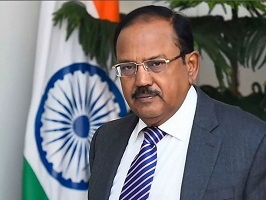India will now finally have a national maritime security coordinator (NMSC) to ensure effective coordination and cohesive policy-making among the disparate central and state authorities dealing with maritime affairs from the coastline to the high seas.
The Cabinet Committee on Security has approved the post of the NMSC, who will also act as the interface between military and civilian agencies to strengthen the country’s maritime security, energy and ‘blue economy’ needs, sources said on Saturday. A retired or serving Vice Admiral of the Navy (equivalent to a Lt-General in the Army) is likely to be appointed to the post. The NMSC will work in the National Security Council Secretariat and report to national security adviser Ajit Doval.
The government was working towards creating an apex federal body, the National Maritime Commission (NMC), and the post of the NMSC. While the NMC “is still a work in progress”, the NMSC post has now become a reality. “It’s a long overdue reform. The NMSC’s charter of duties will soon be notified,” said a source. “The basic charter will be ensuring coordination among the multiple authorities largely working in silos, and often at cross-purposes. They range from central ministries and departments (external affairs, defence, home, shipping, fisheries etc) and state governments to the Navy, Coast Guard, customs, intelligence agencies and port authorities. He will also look at some technology aspects,” he added.
The urgent need for an effective federal maritime mechanism has been repeatedly stressed over the years. The 2001 Group of Ministers’ report on reforming the national security system after the Kargil conflict, for instance, underlined the need for “an apex body for management of maritime affairs for institutionalised linkages among the Navy, Coast Guard and ministries of central and state governments”





